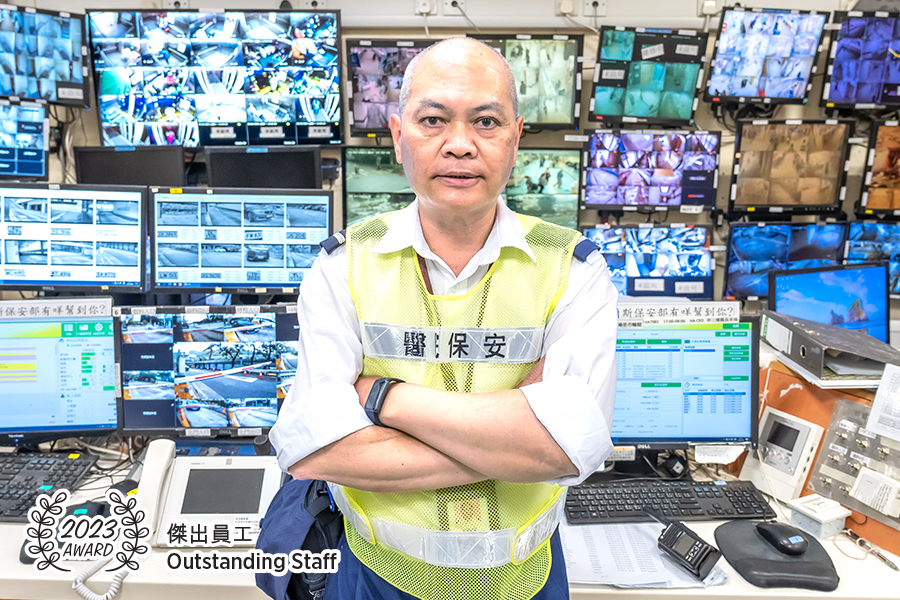The safe pair of hands at hospital
 Li Fuk-shing
Li Fuk-shing
Operation Assistant IIIA (Security Office), Prince of Wales Hospital
Security guard Li Fuk-shing has been keeping patients and colleagues safe for nearly 30 years but was taken aback when he discovered he might be honoured for his work. “I never thought I could win this award,” he recalls. “When my supervisor said he wanted to nominate me as an outstanding member, I thought: ‘Is this possible?’” Li has encountered a huge variety of situations in his three decades of work, including emergencies and violent incidents. “I am in contact with patients and their families every day and I understand their situations. I am all ears.” he says. After transferring from a rehabilitation hospital to an acute hospital, Li wanted more than anything to be able to help people.
The most dramatic moment came when Li helped evacuate 100 more medical students after a fire broke out in the quarters two years ago. Li was on patrol in the early hours of the morning when he heard a loud explosion from the lower levels of the medical school student hostel of the Chinese University of Hong Kong at Prince of Wales Hospital. He notified the control room for back-up before searching for the cause of the fire and helping an injured medical student near the scene of the blast. The student was then sent to the intensive care unit.
“We have fire and emergency drills every week, so I tried to help the victim first after assessing the situation,” Li recalls. “The victim’s face was blackened by fire and some of his hair was burnt. I am glad to say he recovered after receiving treatment, and I’m grateful to the other security guards for quickly evacuating the students.” The heroic rescue earned him the respect of his colleagues as well as praise from the police and fire service.
“The most important thing for security guards is to know how to react flexibly,” Li says. “I often tell new colleagues there are infinite possibilities in the way we can handle issues.” On another occasion, he took a patient to the accident and emergency department by wheelchair and was about to return the wheelchair when he saw another elderly man limping, so he went up to him and offered to take him to the hospital building for a follow-up appointment. “My heart was lifted when I saw the patient’s appreciative gratitude,” he says. “The elderly man was clearly in need. As I can help him in the meantime, why not offer him a ride?”
Li will retire next year but plans to take part in hospital volunteer work to continue helping people after he has stepped down from his job.